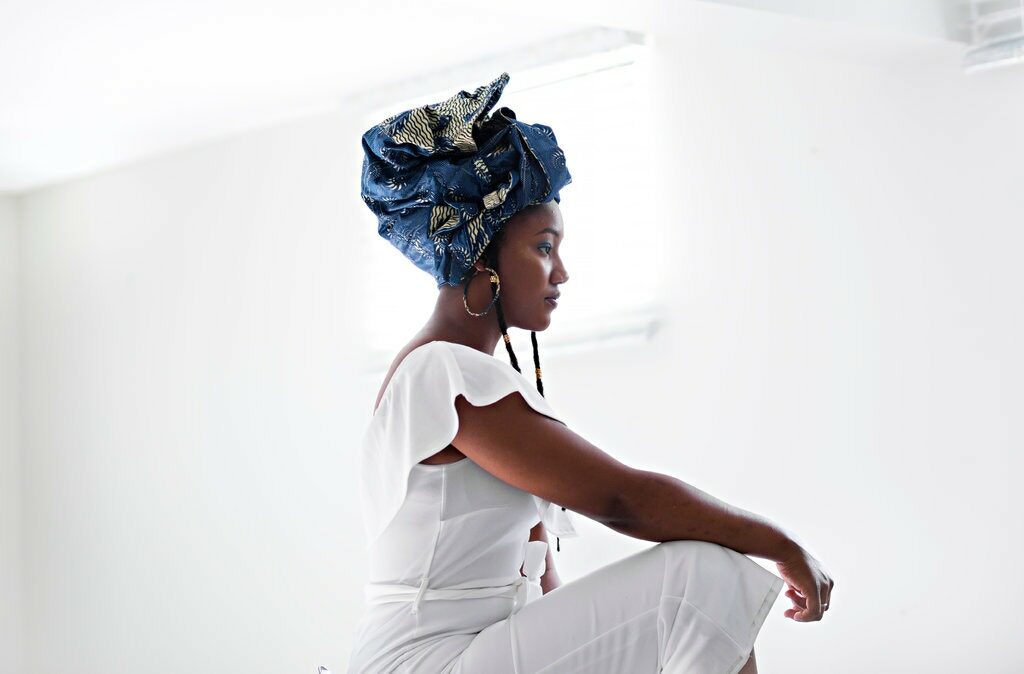
Credit: Tara Walton for The New York Times
Following a former beauty queen, Fatou Jallow’s, public accusations of rape and sexually assault against former president Yahya Jammeh, many Gambian women have taken to social media to share their stories and named their abusers.
The hashtag #IamToufah and #SurvivingMelville are trending on social media as Gambian women and girls defy strong cultural and religious taboos to share their experiences.
Isatou Chaat Joyce Sanyang took to twitter to accuse Melville Robertson Roberts, a senior government official and lawyer, of ‘rape’.
She wrote:
“Imagine trusting someone highly regarded in the society, someone whom is to defend and make sure crime doers are put behind bars, a so-called barrister raping an innocent young lady, without any mercy saying ‘you can scream all you want but no one will hear you not even God will help you’.
“Breaking the cycle of being silent anymore. We’re are scared to speak our ordeal because of bullying and how the society judges us.. I believe Tufah and I Isatou Joyce Sanyang hereby accuses Melville Robertson Roberts for raping me… I was scared to speak out because I got no evidence…not anymore it is your time to pay”.
Another victim Kadija Bokum, also share her traumatic experience with Melville Roberts.
“Any individual that bravely speaks out about Melville Roberts trying to rape or raped them – I believe you and I know he is a devil in a sheep’s clothing. When I was studying law, I met him and I thought he could be my mentor little did I know that he has other motives – sex.
“He would do his utmost best to lure you, sleep with you and dump you. I know girls that are victims. He tried enormously to get beneath my pants but only the lord saved me from his devilish intention. Roberts is a monster. A demon. A dog who has lost control of his willy. If you don’t consent to sex and someone forces you to do something sexual, this is sexual assault, abuse, and/or rape. Melvin is nothing but a liar and a rapist”.
Fatou Elika Muloshi said:
“This guy makes girls believe he’s rich, takes advantage of his position, when you ask him for help, he uses that as an opportunity to abuse and rape you. Let’s speak up girls.”
Nana Ofori-Atta, a prominent Gambian filmmaker and entrepreneur, also spoke out about being sexually assaulted as a child.
“I was sexually molested and abused from the age of 5 to 10 by family members and close friends. I was also sexually assaulted by a man who attended Bethel Church which was my church growing up.
“For those confused about what sexual violence is. It is when a sexual act is performed on or towards a person against their consent.
“I wonder, if they think we forget. Well I haven’t. I remember every face, the thickness of the dark, each flicker of light, the cream of a door opening. I remember the sound of feet trying to tiptoe, the offer of a treat to do what I was told, the laughter as they watched. I remember every painful, confusing touch and the dent the bed had where he sat.
“And when I remember, I am not filled with anger or hatred – just sadness. A deep sadness where light cannot go, where joy does not smile and which time has not healed.
“I will not call anyone’s name. The Gambia is so small and our Creole community so tiny we will all be affected. But maybe one day I will, when I write my book. For now, I dare anyone to all me a liar.”
Many have shown their support for
the bravery of these women to speak out and spark a conversation in a society where sexual harassment and abuse against women are usually swept under the carpet.
Baboucarr Sanyang, a blogger wrote:
“I always wondered when the #metoo revolution would hit our shores – because it was guaranteed to be a bloodbath given the endemic rape culture.
“Particularly in a patriarchal environment such as ours, when a woman/women come(s) forward of her/their own volition to accuse someone of rape, given the headwind of stigmatization and blame culture, odds are its the damn truth.
“You’d be amazed by the number of men that (ab)use the power/age differential in their professional/personal relationships with women. That same delta also contributes to victims being unwilling to report the crimes. Glad to see the first signs of change.”
Abdoulie Sey, a journalist and activist wrote:
“These stories about rape and sexual abuse are just sickening. But there isn’t anything more insulting than trying to justify rape. Can’t believe our society harbours such decadence. Unbelievable. Sad.”
Dr Ishmael Ceesay, a University lecturer, wrote:
“Rape and sexual harassment have no place in our society. Let’s overcome the stigma, denial & twisted definitions of rape so that the victims can come forward so we can put an end to this evil. You will have our full support. We all share your pain.”
Mariama Colley, an actress and social activist, wrote:
“One of the primary reasons women and girls don’t come forward to report sexual harassment or assault is shame. Shame is at the core of the intense emotional wounding women and girls experience when they are sexually violated. Therefore let’s not point fingers, judge or insult victims.”
Ouzin Keita, a writer and blogger, wrote:
“I am appalled but not surprised at these revelations. More importantly, I stand in solidarity with those that have made the choice to speak out #IamToufah #SurvivingMelville”.










Recent Comments